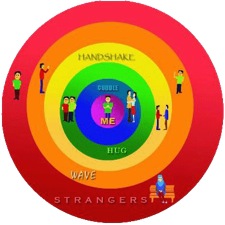Healthy teens should know their own selves and have a good relationship with their parents, family members, friends and the community.
Yourself
It is important to cherish and treasure your body:
-
Understand the normal changes of your body (please see the topic Changes in puberty)
-
Practice good self hygiene
-
Avoid high risk behaviours:
-
Smoking
-
Taking alcohol and drugs
-
Premarital sex
-
-
Accept your body for what it is. Avoid putting your hopes too high (for example, expecting to have a body like a model). Please see the topic Body Mass Index.
-
Know your own values
-
Choose to do what is right
-
Beware of the effects and consequences of your actions
-
Understand that what you do might hurt you or other people
-
Be wary of the potential bad influence that exists around you (for example: peers, internet, the movies and magazines)
-
Be wary of doing something due to peer pressure which is against your own values and beliefs
-
Get help from trusted sources
-
Increase your own knowledge about sexuality
-
Enjoy a healthy relationship without involving in sex before marriage and understanding sexuality
-
Know the consequences of a sexual relationship. Please refer to the topic Teenage pregnancy and Sexually Transmitted Infections (STI’s).
-
Make your own choices that are in line with the teachings of your religion and the values of the culture of the community around you.
-
Understand and accept your gender identity
-
Understand your sexual orientation.
-
Accept that every individual has their own set of values which may be different from yours
-
Get help from trusted sources
Your parents and your family
-
Communicate effectively with your parents and your family
-
Know your role and responsibilities
-
Act wisely
-
Discuss with your parents regarding the rules and limits of socialization
-
Respect the values and rights of other people
-
Your parents might have different view from you:
-
Accept and cherish them for who they are
-
Listen to their views
-
Try to share your feelings with your parents and family
-
Discuss openly with your parents, and try your best to compromise with your parents
-
Your friends
-
Communicate effectively
-
Appreciate their opinions and their life values
-
Know your limits when you are interacting with your friends. Please refer to the Circle of Relationship
-
Avoid receiving negative peer pressure from friends,
-
Avoid being deceived
-
Learn how to react to peer pressure and manage it positively (Please refer to the topic Assertive)
Your community
-
Apart from you, your family and your friends, you are also part of a larger community, which includes:
-
Teachers
-
Leaders
-
Friends and acquaintances
-
Relatives
-
Religious leaders
-
-
Please realise that whatever you do will have an impact on the other members of your community
-
Communicate effectively
-
Value the culture and the opinion of other people
-
Avoid letting other people take advantage of you
-
Learn how to be firm
The colours and meaning of ‘The Circle of Relationships’
‘Circle of relationships’
|
|
The picture shows the relationship between the colours of the circles with the different types of relationships
-
Personal circle – Purple
-
You are the most important person in your life
-
No one has the right to touch you except with your permission
-
You do not touch another person except with that person’s permission
-
-
Warm, close hugs circle – Blue
-
Only a few special people can give you a warm, close hug and vice versa, for example your parents
-
-
Hugs circle – Green
-
There are a few people whom you can give a normal, non intimate hug to like your close friends on yours/their special day
-
-
Handshake circle – Yellow
-
You can shake hands with your acquaintances or when you are introduced to someone (but in some cultures hand shakes between opposite sex is not allowed)
-
-
Wave circle – Orange
-
You can give a wave or a nod of your head to someone whom you know (acquaintance)
-
-
Stranger circle – Red
-
You do not touch someone whom you do not know
-
Someone who does not know you should not touch you
-
A touch can happen when you are dealing with the members in your community for example: you might hold the elbow of a blind old lady whom you are helping to cross the road
-
You are the one that determines who can touch you. If you become or feel uncomfortable, say “Stop” and straight away leave the person and the situation.
| Last Reviewed | : | 26 November 2014 |
| Writer | : | Dr. Nik Rubiah bte. Nik Abdul Rashid |
| Translator | : | Dr. Nazrila Hairin bte. Nasir |
| Accreditor | : | Dr. Hargeet Kaur A/P Basant Singh |








